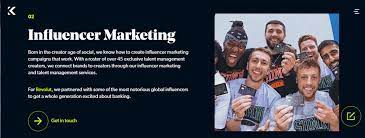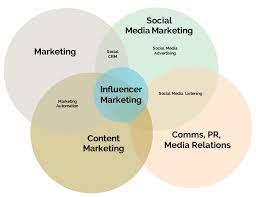Crafting a Compelling Brand Image for Business Success
The Importance of Brand Image in Building a Successful Business
Brand image plays a crucial role in the success of any business. It is the perception that consumers have of your brand, encompassing everything from your logo and visual identity to your values and reputation. A strong brand image can differentiate your business from competitors, build trust with customers, and drive loyalty.
One key aspect of brand image is consistency. Consistency in branding helps to create a strong and recognisable identity for your business. When consumers see consistent branding across all touchpoints, such as your website, social media profiles, and marketing materials, it reinforces the image of professionalism and reliability.
Another important element of brand image is authenticity. Consumers are increasingly drawn to brands that are genuine and transparent in their communications. By being authentic in your messaging and actions, you can build a deeper connection with customers and foster loyalty over time.
Brand image also plays a significant role in shaping consumer perceptions. A positive brand image can influence purchasing decisions, attract new customers, and encourage repeat business. On the other hand, a negative brand image can deter potential customers and harm your reputation.
Building a strong brand image requires careful planning and consistent effort. It involves understanding your target audience, defining your brand values, and communicating them effectively through all channels. By investing in building a positive brand image, you can create a competitive advantage for your business and set yourself apart in the market.
In conclusion, brand image is an essential component of building a successful business. It shapes how consumers perceive your brand and influences their buying decisions. By focusing on creating a strong, authentic, and consistent brand image, you can establish trust with customers, drive loyalty, and ultimately achieve long-term success.
Understanding Brand Image: Key Questions and Answers
- What is meant by a brand image?
- What are the 4 components of brand image?
- What is brand image and example?
- What is a strong brand image?
- What is brand image vs identity?
- What is a good brand image?
- What is meant by brand image?
- What determines brand image?
What is meant by a brand image?
A brand image refers to the overall perception that consumers have of a particular brand. It encompasses various elements such as the brand’s visual identity, values, messaging, and reputation in the eyes of customers. Essentially, a brand image is how a brand is perceived by its target audience and the associations that consumers make with it. It plays a crucial role in shaping consumer attitudes and preferences towards a brand, influencing their purchasing decisions and loyalty. A strong and positive brand image can differentiate a brand from its competitors, build trust with customers, and create long-lasting relationships with its audience.
What are the 4 components of brand image?
When considering the components of brand image, it is essential to focus on four key elements that shape how consumers perceive a brand. These components include brand identity, brand personality, brand associations, and brand reputation. Brand identity encompasses the visual aspects of a brand, such as logos and design elements. Brand personality refers to the human characteristics associated with a brand, which help to establish an emotional connection with consumers. Brand associations are the attributes and values linked to a brand, influencing how it is perceived in the marketplace. Lastly, brand reputation reflects the overall perception of a brand based on its past actions and interactions with customers. By understanding and effectively managing these four components, businesses can build a strong and positive brand image that resonates with their target audience.
What is brand image and example?
Brand image refers to the overall perception that consumers have of a particular brand. It encompasses the visual elements, values, reputation, and associations that people make with a brand. An example of a strong brand image is Apple. Apple is known for its sleek and innovative products, minimalist design aesthetic, and user-friendly technology. The brand image of Apple conveys qualities such as creativity, quality, and cutting-edge technology, which have helped it build a loyal customer base and stand out in the competitive tech industry.
What is a strong brand image?
A strong brand image is the perception and reputation that a company has built among its target audience. It goes beyond just a logo or visual identity and encompasses the values, personality, and overall essence of the brand. A strong brand image is one that resonates with consumers, evokes positive emotions, and sets the brand apart from competitors. It is built on consistency, authenticity, and delivering on promises to customers. A strong brand image not only attracts customers but also fosters loyalty and trust, ultimately contributing to the long-term success of a business.
What is brand image vs identity?
Brand image and brand identity are two key concepts in the world of branding that are often confused. Brand image refers to how consumers perceive a brand based on their interactions and experiences with it. It encompasses the emotions, beliefs, and associations that consumers have with a brand. On the other hand, brand identity is how a brand presents itself to the world through its visual elements, messaging, and values. While brand image is shaped by consumer perceptions, brand identity is crafted by the brand itself to communicate its essence and differentiate itself from competitors. In essence, brand image is how consumers see the brand, while brand identity is how the brand wants to be seen. Understanding the distinction between these two concepts is crucial for building a strong and cohesive branding strategy that resonates with consumers and effectively communicates the essence of the brand.
What is a good brand image?
A good brand image is one that resonates positively with consumers and effectively communicates the values and identity of a business. It goes beyond just a visually appealing logo or design – it encompasses the overall perception and reputation of the brand in the eyes of its target audience. A good brand image is authentic, consistent, and memorable, evoking trust and loyalty from customers. It reflects the core values and promises of the brand, creating a strong emotional connection that sets it apart from competitors. Ultimately, a good brand image is one that inspires confidence, fosters customer engagement, and drives long-term success for the business.
What is meant by brand image?
Brand image refers to the perception that consumers have of a brand, encompassing its visual identity, values, reputation, and overall personality. It is how a brand is perceived in the minds of customers and stakeholders based on their interactions and experiences with the brand. A strong brand image is essential for building trust, loyalty, and differentiation in a competitive market. It reflects the essence of a brand and influences consumer behaviour, shaping their attitudes and preferences towards the brand. Ultimately, brand image plays a crucial role in defining how a brand is perceived by its target audience and in driving its success in the marketplace.
What determines brand image?
Brand image is determined by a combination of factors that shape how consumers perceive a brand. These factors include the brand’s visual identity, messaging, values, reputation, customer experiences, and overall consistency in branding. The way a brand presents itself through its logo, colours, and design elements contributes to its image. Moreover, the messaging and communication strategies employed by a brand play a significant role in shaping consumer perceptions. The values and ethics that a brand upholds also influence its image, as consumers are increasingly drawn to brands that align with their beliefs. Additionally, the reputation of a brand, built through past experiences and interactions with customers, greatly impacts its image in the eyes of consumers. Overall, it is the collective impact of these elements that determines the brand image and how it is perceived by the target audience.










